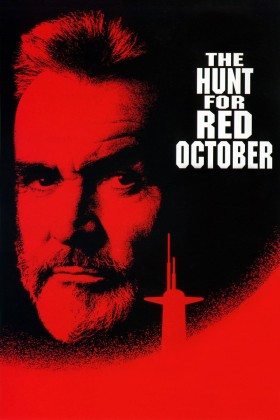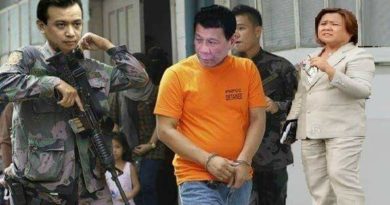OP ED COLUMN: PUBLIC LIVES- What ‘Red October’ is all about By: Randy David
Lacking experience in state affairs, President Duterte has made many mistakes during his brief presidency.
.
He has shocked the Filipino people and the world with his murderous war against drug users and drug pushers.
.
He has turned off many sympathizers by his crude language and blasphemous tirades against organized religion.
.
But, a tolerant nation has continued to stand by him, seeing in his rise to the nation’s highest office a clear sign that democracy works in the country.
Basking in the public’s postelection adulation of him, Mr. Duterte felt secure enough to take on the Catholic Church, the mainstream media, some figures in the business community he singles out as the rapacious oligarchy, the United States and the European Union, the UN human rights commission, and the International Criminal Court, etc. — all at the same time.
.
He seems well aware that, unless the military turns against him by way of a coup or a mutiny, no attempt to topple his presidency can ever succeed.
– SPACE RESERVE FOR YOUR ADVERTISEMENT –
.
Accordingly, he has taken good care of “his” men, as he likes to refer to the Armed Forces of the Philippines and the Philippine National Police.
.
He has doubled their salaries, equipped them with new firearms, and increased their budgets.
.
He has regularly visited wounded personnel in hospitals and attended the wakes of military and police casualties.
.
He has appointed retired military and police officials to high positions in the bureaucracy, far more than any previous administration.
On top of these, Mr. Duterte has also spent more time than any of his predecessors going to military camps and speaking to the troops.
.
In these frequent visits, he tirelessly assures the uniformed services that he would protect them against criminal liability and keep them out of jail should they encounter any trouble in the performance of their duties.
.
Lastly, he tells them that if they feel unhappy with his presidency, it won’t be necessary for them to conspire against him—that all they need to do is tell him to step down, and he would comply without hesitation.
This message has been such a recurrent item in Mr. Duterte’s talks to the military that one can’t help seeing it as a significant subtext of an ongoing conversation with the military.
.
Rather than presume their loyalty to the Constitution, as befits a professional army in a democracy, he seems to expect more from them by way of trust — i.e., that he knows what he’s doing.
I suspect he has long been aware of grumblings in the Armed Forces over his administration’s friendly overtures toward the local communist movement.
.
Indeed, when he was leading in all the polls on the eve of the 2016 elections, his chummy-chummy and almost affectionate conversation over Skype with his former teacher, Jose Maria Sison, raised quite a few eyebrows.
.
Here was a would-be president who seemed totally indifferent to being tagged as a communist coddler.
More than the Moro insurgency, it is the threat from the CPP-NPA that has consumed the Philippine military for the longest time.
.
The military’s deeply ingrained anticommunist counterinsurgency mindset has been an obstacle to all past attempts to end the communist insurgency through peaceful negotiations.
In the early months of his term, President Duterte seemed undeterred by this problem. As Davao City mayor, he had struck a modus vivendi with the local communist rebels based on his personal friendship with their leaders. Banking on this reserve of goodwill, he was confident he could replicate his success in Davao on a national scale.
.
Thus, not only did he authorize the immediate resumption of the stalled peace talks, he also ordered the release of the rebels’ top leaders from prison so they could participate in the negotiations.
.He welcomed their leaders to Malacañang like long-lost friends, and invited them to nominate their choices for key positions in the Cabinet. He kept his word and appointed their comrades.
Through all these developments, the military publicly said nothing that could be taken as disagreement with the President’s policy.
.
But, we can be certain the military leadership managed to communicate their reservations to their Commander in Chief, especially after the corpses of soldiers and policemen killed in ambushes and encounters with so-called “communist-terrorists” started to turn up in large numbers.
The military must have heaved a sigh of relief when Mr. Duterte finally decided to call a halt to the Oslo-sponsored peace talks, even as the possibility of reopening them remained.
.
They must have felt further affirmed when the President let go of the last leftists in his Cabinet. Now, they want to make sure that’s where things will stay.
This, I believe, is what “Red October” is all about. It is an attempt to put an end to Mr. Duterte’s hitherto exuberant approach to dealing with the armed Left.
.
It’s also a subtle way of telling him that, while they are not his enemies, they are also not his minions.
.
Riding on the President’s paranoia about destabilization efforts against his administration, the Armed Forces has painted a scenario that is reminiscent of the months prior to Marcos’ declaration of martial law.
.
It tells of widespread recruitment among university students and factory workers for a communist-led antigovernment general strike, in collusion with the elite and the traditional opposition. It is a distraction from the people’s main problems.
– SPACE RESERVE FOR YOUR ADVERTISEMENT –
.
But, in raising a big fuss about it, the military and the police may have unwittingly awakened a sleeping giant — the same student movement that led the antifascist struggle throughout the period of martial law. [email protected]
 All photographs, news, editorials, opinions, information, data, others have been taken from the Internet ..aseanews.net | [email protected] |.For comments, Email to :D’Equalizer | [email protected] | Contributor
All photographs, news, editorials, opinions, information, data, others have been taken from the Internet ..aseanews.net | [email protected] |.For comments, Email to :D’Equalizer | [email protected] | Contributor








